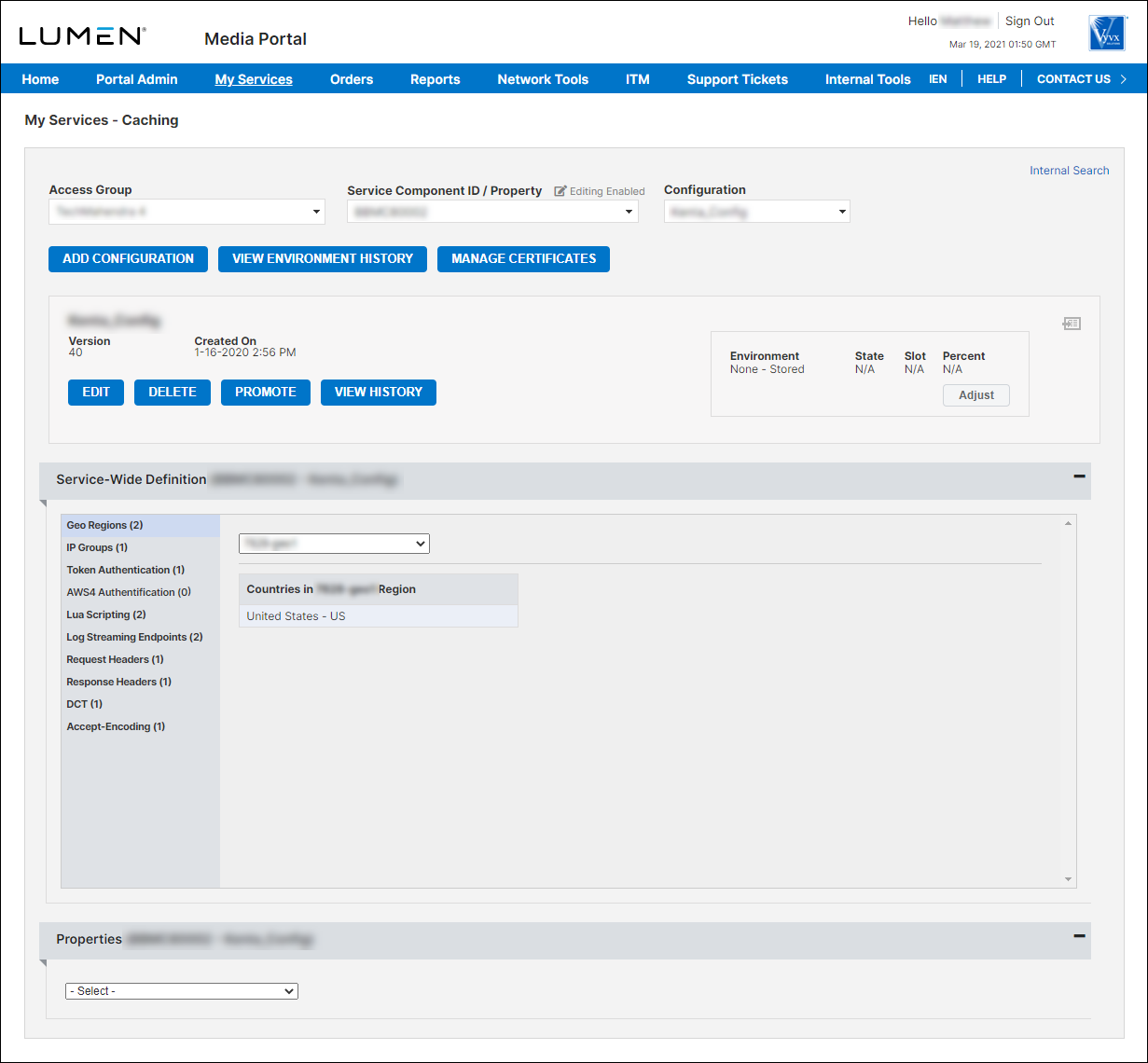Lumen help
Media portal: Caching
The Lumen Caching and Download service gives you a flexible and cost-effective solution to deliver your digital content to web users across the globe.
Configurations
Configurations tell the Lumen CDN (content delivery network) what to do when it receives requests for your content. You use definitions, properties, and match rules to build a configuration. Then, you promote the configuration to an environment to activate it.
- Adding a configuration
- Editing a configuration
- Deleting a configuration
- Promoting a configuration to an environment
- Enabling a second production slot for a SCID
- Changing the traffic allocation for production slots on a SCID
- Viewing the history for a configuration
- Viewing the history for an environment
Service-wide definitions
Service-wide definitions are collections of common configuration data that can be referenced and that influence system behavior. Examples of definitions are a geo region or IP group. In and of itself, a definition does not influence how the system processes requests. Using definitions helps you avoid having to repeat common tasks across multiple match rules. You manage them in a single list allowing for a single change to propagate through all references.
- Adding a geo-region definition to a configuration
- Adding an IP-group definition to a configuration
- Adding a token-authentication definition to a configuration
- Adding an AWS4 authentication definition to a configuration
- Viewing a Lua-scripting definition on a configuration
- Adding a log-streaming endpoint definition to a configuration
- Adding a request-header definition to a configuration
- Adding a response-header definition to a configuration
- Adding a DCT-definition to a configuration
- Adding an accept-encoding definition to a configuration
Properties
A property is a key component in a configuration and container of all match rules. It is comprised of a primary alias, 0 or more secondary aliases, and an origin.
Match rules (criteria-based settings)
Match rules are the core of the configuration. They provide the criteria for evaluating requests and responses and, when matched, specify one or more actions (e.g., setting cache expiration, calling geo definitions, content/header processing modes, etc.) for the system to take. Criteria-based settings are applied only if the specified criteria (a path) is met.
Certificates
Before creating an HTTPS property, you’ll want to upload your certificate. Using Media portal, you can also generate a certificate signing request (CSR) you'll use to submit to your certificate authority.
Standard certificates:
- Adding a new certificate
- Replacing a certificate
- Regenerating a CSR
- Viewing the state of a certificate
- Viewing details for a certificate
Let's Encrypt certificates:
- Creating a Let's Encrypt certificate
- Updating a Let's Encrypt certificate
- Requesting a certificate for your migrated properties
- Regenerating a Let's Encrypt certificate
- Reissuing a Let's Encrypt certificate
- Deleting a Let's Encrypt certificate
- Viewing the state of a certificate
- Viewing details for a certificate





